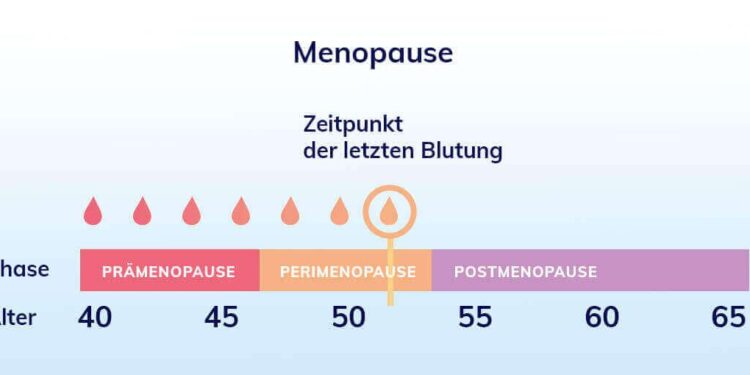In Denmark, a growing conversation around menopause and the workplace is challenging long-standing taboos and calling for urgent reforms. As more women experience menopausal symptoms that can affect their job performance and well-being, advocates argue that menopause-related issues should not threaten women’s employment or career prospects. The Nordic Labour Journal explores how Danish employers, policymakers, and trade unions are addressing the intersection of menopause and work, highlighting efforts to foster more inclusive and supportive workplaces across the Nordic region.
Menopause and the Workplace The Invisible Barrier to Gender Equality
In Denmark, growing awareness surrounds how menopause profoundly affects women’s experiences at work, yet many still face silent struggles that undermine their careers. Symptoms such as hot flashes, fatigue, and cognitive difficulties are often dismissed or misunderstood, creating an invisible barrier that limits equal opportunity. Despite Denmark’s progressive labor policies, menopause remains a rarely discussed issue, leading to a lack of practical workplace accommodations and support. This gap not only impacts individual well-being but also contributes to higher absenteeism and premature exits from the workforce.
Employers and policymakers in the Nordic region are urged to recognize menopause as a legitimate workplace concern. Integrating measures such as flexible work hours, climate-controlled environments, and educational programs can foster an inclusive culture. Below is a snapshot of the proposed initiatives aimed at breaking down this silent barrier:
- Flexible Scheduling: Allowing adjustments in work hours to manage symptoms effectively.
- Health Education: Training managers to understand menopause-related challenges.
- Support Networks: Creating peer groups and counseling services for menopausal employees.
| Initiative | Benefit | Implementation |
|---|---|---|
| Flexible Work Policy | Improved productivity and retention | Company-wide adoption |
| Manager Training | Increased empathy and awareness | Quarterly workshops |
| Employee Support Groups | Enhanced mental health | Monthly meetings |
How Danish Employers Can Support Women Going Through Menopause
Employers in Denmark are increasingly recognising that supporting women during menopause is crucial for maintaining a healthy and productive workforce. Practical adjustments, such as flexible working hours and temperature control within offices, can significantly alleviate discomfort caused by symptoms like hot flashes and fatigue. Moreover, creating a culture of openness where menopause is openly discussed helps dismantle stigmas and encourages women to seek help without fear of discrimination or job insecurity.
Organisations that prioritise menopause-friendly policies stand to benefit from higher retention rates and enhanced employee well-being. Key measures include:
- Confidential access to health support, such as counselling or medical advice tailored to menopausal symptoms.
- Awareness training for managers to recognise and accommodate menopause-related challenges.
- Adjustable workloads during particularly difficult periods to avoid burnout and absenteeism.
| Support Measure | Benefits |
|---|---|
| Flexible Working Hours | Improved work-life balance and reduced fatigue |
| Menopause Awareness Training | Better understanding from management and colleagues |
| Access to Health Resources | Quicker symptom management and support |
| Physical Workplace Adjustments | Reduced hot flashes and discomfort at work |
Policy Changes Needed to Protect Women’s Jobs During Menopause
To effectively safeguard women’s employment during menopause, workplaces must adopt policies that acknowledge the unique challenges of this life stage. Current legislation often overlooks menopausal symptoms such as fatigue, hot flashes, and cognitive impairment, which can affect work performance. Introducing flexible work arrangements, including remote work options and adjusted hours, would help accommodate fluctuating health needs without penalizing productivity. Additionally, training managers to recognize menopause-related issues fosters a supportive environment where women feel comfortable discussing their needs without fear of discrimination or stigma.
Employers should also implement comprehensive health and wellness programs tailored to menopausal employees. This includes access to on-site health screenings, counseling services, and educational workshops to raise awareness across all levels of the organization. The table below highlights key policy recommendations alongside their intended outcomes:
| Policy Recommendation | Intended Outcome |
|---|---|
| Flexible Scheduling | Improved work-life balance |
| Manager Training on Menopause | Reduced stigma and better support |
| Health and Wellness Programs | Enhanced employee well-being |
| Legislative Protections | Job security during menopause |
The Conclusion
As Denmark continues to lead the way on progressive workplace policies, the call to protect women from losing their jobs due to menopause marks a significant step toward greater gender equality. Addressing menopause-related challenges not only promotes the well-being of employees but also reflects a broader commitment to inclusive and supportive labor environments. The Nordic Labour Journal will keep tracking how these developments unfold, spotlighting efforts that ensure no woman’s career is sidelined by natural health transitions.















